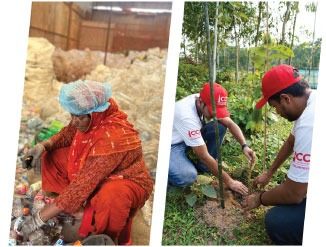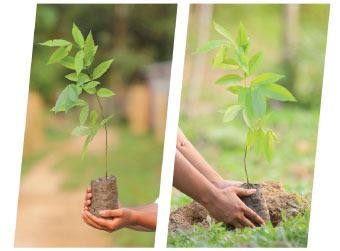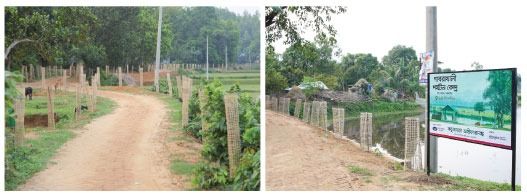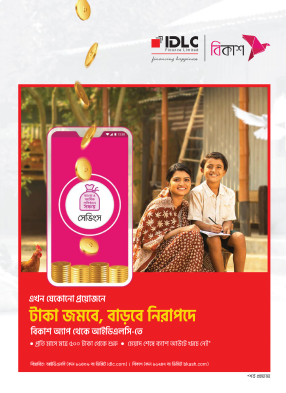- info@ficci.org.bd
- |
- +880248814801, +880248814802
- Contact Us
- |
- Become a Member
- |
- |
- |
- |
- |

FDI Landscape in Bangladesh
There is no denying that foreign direct investment (FDI) plays a crucial role for any developing country as it's instrumental in shaping up the economy and expediting growth across different sectors. Before August 2024, Bangladesh witnessed steady but moderate FDI inflows; however, the overall situation was still not very satisfactory. The country's net foreign direct investment (FDI) inflow fell by 8.8% in FY24 in comparison to previous years amidst different uncertainties, including political instability, a shaky foreign exchange situation and other relevant factors. Especially after the political transition on 5 August, many things have changed while many foreign investors are in fix about making fresh investments in Bangladesh.
 Despite significant challenges, many multi national companies riding on the confidence of foreign investors, are continuously plowing back its revenue into Bangladesh's market as part of its long-term commitment to the local market and the communities. CCI Bangladesh is one of those companies that's continuously striving to add value to the evolving local market through significant business and community investments, employment opportunities.
Despite significant challenges, many multi national companies riding on the confidence of foreign investors, are continuously plowing back its revenue into Bangladesh's market as part of its long-term commitment to the local market and the communities. CCI Bangladesh is one of those companies that's continuously striving to add value to the evolving local market through significant business and community investments, employment opportunities.
Turkish investment in Bangladesh via CCI Bangladesh - a new frontier
Türkiye and Bangladesh share very congenial business relations based on mutual interests. The amount of trade between the two countries currently stands at $1 billion, with industry insiders speculating it to reach $3 billion soon. It is promising to see that many Turkish companies are taking an interest in this market because of its strategic advantage.
The Anadolu Group operates in 20 countries and exports to over 100 countries while maintaining its activities in 8 industries with more than 80 companies and approximately 100 production facilities, 6 R&D centers along with over 100,000 employees.
The Anadolu Group is the majority shareholder of Coca-Cola İçecek (CCI), a leading multinational beverage company. In 2024 CCI acquired Coca-Cola Bangladesh Beverages (CCBB) for USD 130 million, which serves as a strong indicator of confidence in Bangladesh's investment potential. To continue, CCI has further invested USD 20 million, post acquiring CCBB.
CCI operates in Türkiye, Pakistan, Kazakhstan, Iraq, Uzbekistan, Bangladesh, Azerbaijan, Kyrgyzstan, Jordan, Tajikistan, Turkmenistan, and Syria. It employs more than 10,000 people, has a total of 33 bottling plants, and 3 fruit processing plants in 12 countries, offering a wide range of beverages to a population base of 600 million people. In addition to sparkling beverages, the product portfolio includes juices, waters, sports and energy drinks, iced teas and coffee.
 This acquisition is especially significant as it can spur in growth on many fronts and benefit the local economy. CCI will be leveraging its sustainable business model in the high potential market of Bangladesh, which will benefit the beverage industry and related sectors in the long run.
This acquisition is especially significant as it can spur in growth on many fronts and benefit the local economy. CCI will be leveraging its sustainable business model in the high potential market of Bangladesh, which will benefit the beverage industry and related sectors in the long run.
With more upcoming investments, CCI will contribute more towards the socio-economic development of Bangladesh. All of these will have knock-on impacts on Bangladesh's economy, acting as a real shot in the arm of the ailing economy.
The Coca-Cola System's business in Bangladesh: Why this market bears significance
Coca-Cola has been operating in Bangladesh through its authorized bottlers since 1962 by manufacturing and selling non-alcoholic beverages including Coca-Cola, Sprite, Fanta, and Kinley. Since its inception in Bangladesh, the company has adhered to strong business policies, corporate governance, and a solid investment strategy. In February 2024, even in the years to come, this market holds considerable significance for CCI Bangladesh. Bangladesh as a market is very important for CCI Bangladesh owing to several reasons. A growing market, further complimented by a young workforce and strategic location, has the potential to turn Bangladesh into a key investment hub.
 Realizing this, CCI Bangladesh has been prioritizing the Bangladesh market to expedite steady growth. As a testament of this commitment, the Coca-Cola system in Bangladesh employs more than 2500 employees directly & indirectly, and 22,100 jobs are generated in the broader Bangladeshi economy through a wide network of distributors, vendors, retailers, transporters, and farmers.
Realizing this, CCI Bangladesh has been prioritizing the Bangladesh market to expedite steady growth. As a testament of this commitment, the Coca-Cola system in Bangladesh employs more than 2500 employees directly & indirectly, and 22,100 jobs are generated in the broader Bangladeshi economy through a wide network of distributors, vendors, retailers, transporters, and farmers.
Looking forward: How CCI investment will make a difference
CCI's investment in Bangladesh has the potential to elevate the existing bilateral relations between Bangladesh and Türkiye, taking them to new heights. It will also open up the doors for broader collaborations across various industries. Most importantly, CCI's entry into Bangladesh offers substantial growth opportunities. Bangladesh's non-alcoholic beverage market has grown at an impressive 10% CAGR between 2019 and 2022, with an anticipated 12% annual growth through 2032. CCI will play a key role in meeting this target with its technological amenities and operational expertise. With years of experience in the beverage industry, CCI will not only maintain the quality of available products but also help this industry register exponential growth by relentlessly focusing on innovations. As a by-product, this renewed focus by CCI on the Bangladesh market will definitely help to lure in other foreign investors who are now in some sort of fix owing to current instability.

As a responsible corporate citizen, CCI Bangladesh remains steadfast on its sustainable operational and community development goals. The company will keep working to adopt a circular economy model to reduce waste, conserve water, and support local communities. CCI Bangladesh has partnered with Mumanu and BPCL to collect over 8,000 MT of PET for recycling, creating a circular flow of materials while generating more than 350 jobs in the process. Additionally, the Water Champion Initiative provides clean drinking water to 15,000 students daily through safe water plants in schools, supported by rainwater harvesting projects that help replenish groundwater.

To reduce its carbon footprint, switched to HFC-free coolers, and introduced lightweight packaging with 40% less plastic. CCI Bangladesh is also actively involved in community engagement with projects like tree planting, flood relief, and coastal cleanups that benefit both the environment and local communities. These initiatives underscore CCI Bangladesh's commitment to sustainability and long-term positive impact.

Future plans for sustainability & innovation in business
There are enough opportunities for bringing in innovations in product portfolio and exploring opportunities within the Non-Alcoholic Ready-to-Drink (NARTD) sector. Driven by an urge to meet a broader range of consumer needs, CCI Bangladesh intends to tap into the growth potential in various beverage categories, including affordable products, ready-to-drink iced teas, coffees, juices, and mineral water. While branching out to these categories, CCI Bangladesh remains committed to product quality. CCI Bangladesh adheres to stringent quality benchmarks to maintain a high standard. In addition to this, the company has been actively refining its offerings, utilizing data on consumer behaviour to create demand-driven products tailored to the local market. While expanding its operations in the NARTD market, CCI Bangladesh will create scopes for local job creation, which will, in turn, bolster the local economy.

Challenges ahead - How Bangladesh can lure in more foreign investments
There are quite a few challenges for Bangladesh to make sure that foreign investors take a serious interest in the local market. Political uncertainties remain a key challenge, followed by bureaucratic tangles and a not-so-friendly business climate. CCI Bangladesh looks forward to continued improvements in the business climate, without which it is not possible to implement such visionary strategies and future plans for Bangladesh's economy. Regaining the confidence of the investors is of paramount importance right now. To achieve this, the stakeholders need to focus on the potential of public-private partnerships. More engagements between the stakeholders, including the government and other organizations such as Bangladesh Investment Development Authority (BIDA), could go a long way in ironing out the wrinkles that are acting as barriers to creating a congenial business environment.
Attract a lot of foreign investments in recent years largely because of the fact that they have a very strong policy framework. Taking inspiration from global examples, Bangladesh should also simplify the procedures and introduce more business-friendly policies for both new and existing foreign investors so that FDI inflows show steady growth in the coming years.
Streamlining processes, reducing hassles for investors, strategic prioritization, and sector- specific policy restructuring is the key to establishing an investor-friendly business environment in the country. If Bangladesh can truly support the existing investments, the country could become a hub for different global brands looking for new markets in Asia and turn itself into a top destination for foreign investors.






